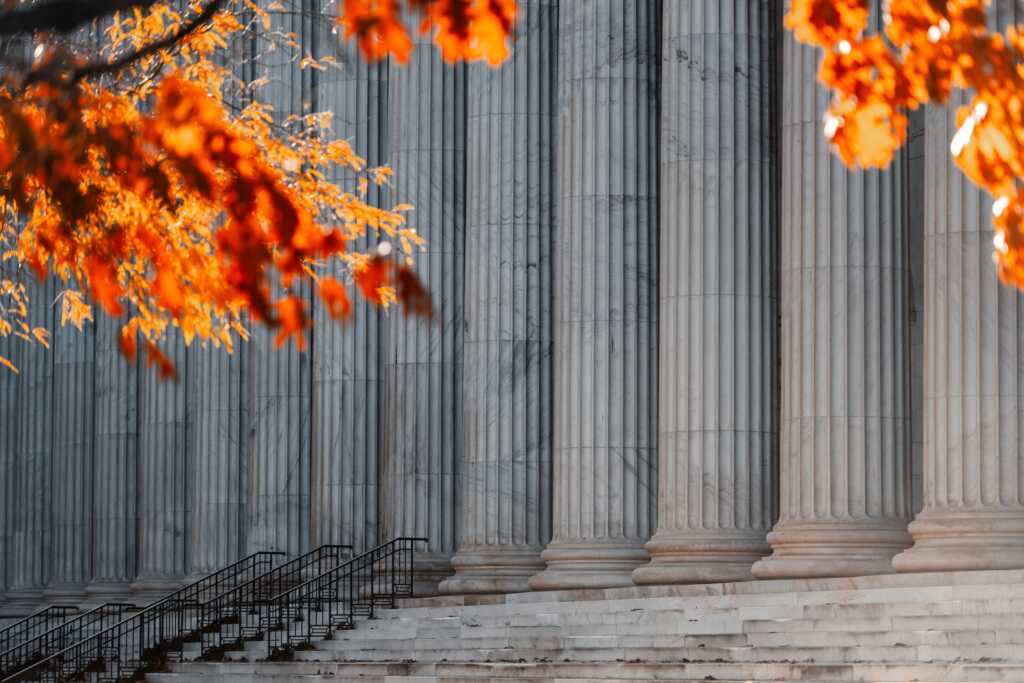After a lengthy legal battle, a Texas judge can continue opening his courtroom proceedings with prayer, according to a split ruling from a New Orleans-based appeals court.
What happened?
The Freedom From Religion Foundation targeted Montgomery County Justice of the Peace Wayne Mack in 2019 over the judge’s custom of starting each court day with a few minutes of prayer delivered by faith leaders from the community, according to Reuters.
On Thursday, the 5th Circuit Court of Appeals voted 2-1 in favor of Mack, rejecting the FFRF’s claim that invocations could be viewed as prejudicial. The judges ruled Mack can continue allowing chaplains and ministers to pray at the start of legal proceedings as long as he extends the invitation to leaders from different faith backgrounds and does not impose consequences on anyone who declines to participate.
We discussed this case on today’s Quick Start 👇
The judges stated in their opinion the FFRF claim was simply not reasonable.
“We cannot credit the plaintiffs’ assertion that ‘coercion in a courtroom doesn’t come from the imposition of actual prejudice; it comes from a perceived risk of prejudice,'” they wrote. “The plaintiffs must present evidence that any such perception is objectively reasonable — evidence from which we can conclude that ‘coercion is a real and substantial likelihood.'”
What was the reaction?
U.S. Circuit Judge E. Grady Jolly dissented, though, arguing it was “reasonable to believe that non-participation will draw his ire, as the former Pentecostal minister campaigned on having prayer in his court” and “has acted hostile following a litigant’s noncooperation in the prayer.”
It is worth noting, however, it would be difficult to legally — or otherwise — prove someone was not participating in prayer, unless the individual was actively protesting the invocation.
Mack, for his part, said in a statement he is “eternally grateful” for the circuit court ruling.
“I look forward to continuing to serve the people of Montgomery County,” he said.
One of Mack’s attorneys, Allyson Ho, an appellate lawyer at Gibson, Dunn & Crutcher, said the appeals court recognized “the history, character, and context of his opening ceremony — which includes welcoming volunteer chaplains of all faiths to lead invocations according to the diverse traditions of those faiths — comports with the Constitution.”
As for the FFRF, the organization’s co-president, Annie Laurie Gaylor, called the circuit court ruling “disturbing,” according to the Houston Chronicle.
“A courtroom is not a church and a judge’s bench should not be a pulpit,” she said. “It is a dishonest decision claiming a tradition of courtroom prayer and denying it is coercive.”
What’s the history?
The late-September ruling in favor of Mack comes years after the U.S. Supreme Court decided 5-4 in May 2014 that prayers before government meetings are constitutional. Presumably, court proceedings would fall under that umbrella.
In that case, Town of Greece v. Galloway, plaintiffs Susan Galloway and Linda Stephens argued prayers at the beginning of board meetings in Greece, New York, violated the Establishment Clause of the First Amendment of the U.S. Constitution. At issue was the fact the vast majority of the prayers were Christian in nature.
Then-Justice Anthony Kennedy wrote in his opinion, “To hold that invocations must be nonsectarian would force the legislatures sponsoring prayers and the courts deciding these cases to act as supervisors and censors of religious speech,” adding that involving “government in religious matters to a far greater degree than is the case under the town’s current practice of neither editing nor approving prayers in advance nor criticizing their content after the fact.”
“Legislative bodies do not engage in impermissible coercion merely by exposing constituents to prayer they would rather not hear and in which they need not participate,” he concluded.
***As the number of voices facing big-tech censorship continues to grow, please sign up for Faithwire’s daily newsletter and download the CBN News app, developed by our parent company, to stay up-to-date with the latest news from a distinctly Christian perspective.***



